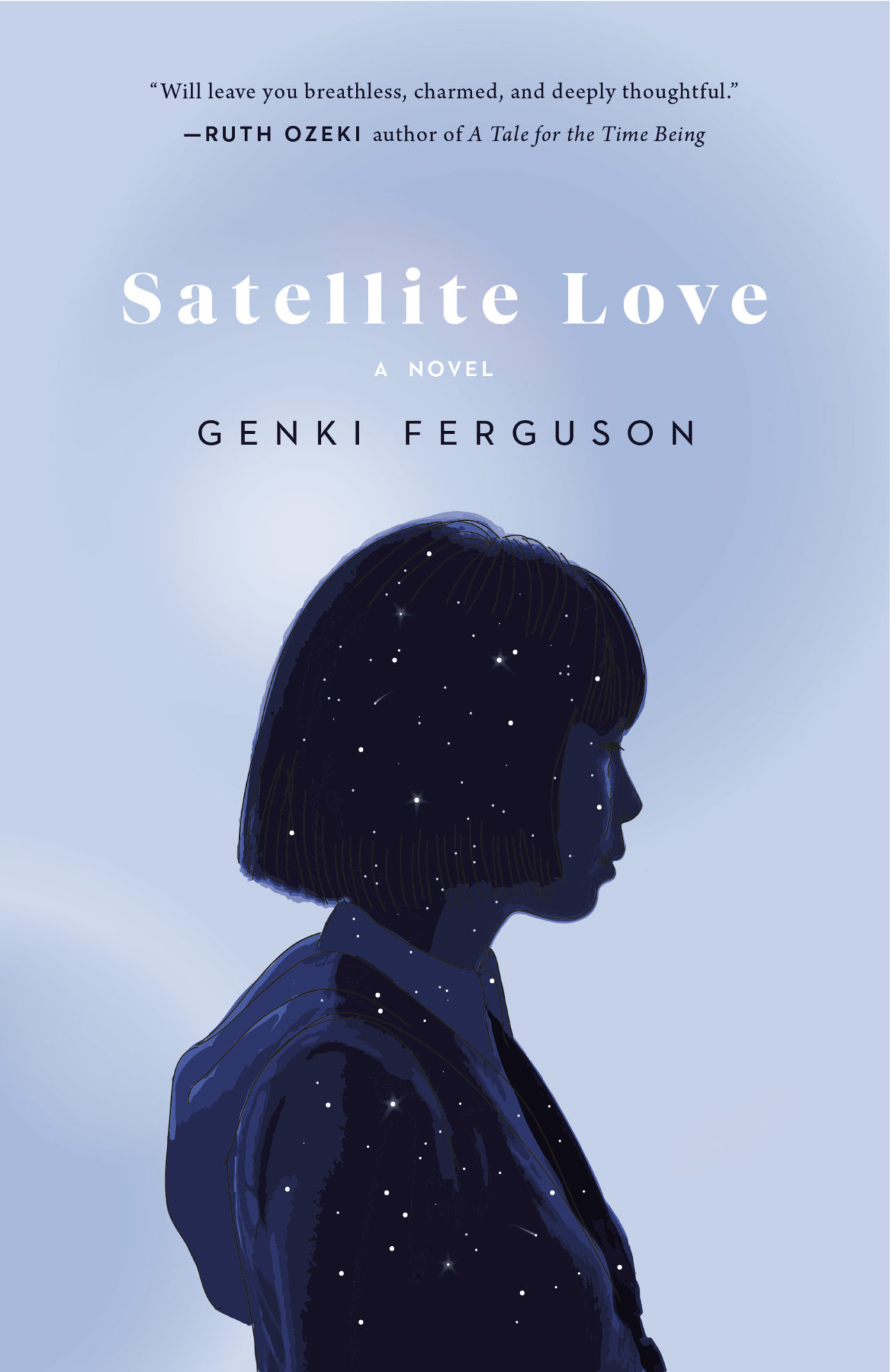Genki Ferguson’s ‘Satellite Love’ Featured on CBC’s The Next Chapter

Posted on | Updated
The debut novel by the recent grad was written during Genki’s time in the ECU Film + Screen Arts program.
Genki Ferguson (BMA 2020) spoke recently with legendary journalist Shelagh Rogers on her long-running CBC show, The Next Chapter, about his debut novel, Satellite Love, which hit the stands earlier this year.
Early in the interview, Shelagh points to a passage in the novel when protagonist Anna Obata first encounters the object of her affection — a Low Earth Orbit satellite (aka LEO) who returns Anna's gaze and descends to earth.
“‘It had erupted violently across my line of sight, and in my heart of hearts I knew that there were no gods up there to greet me, but that burst of light was a sign,’” Shelagh quotes, asking Genki, “What was it a sign of?”
“I think just a sign of maybe not being alone anymore,” Genki answers. “Anna’s a very lonely character and I think she’s searching, like a lot of us are. And for Anna, seeing [the satellite for the first time], she’s not quite sure. It’s kind of nebulous what this general faith — this affirming force — could be, but all she knows is it’s affecting her deeply.”
Satellite Love was written during Genki’s time at Emily Carr University in the Film + Screen Arts program, with his first draft completed during his second semester.
Speaking about the Ana character in a previous interview, Genki suggested feelings of loneliness and alienation are inescapable parts of the experience of being human. But such experiences are not necessarily all bad, he added.
“I think all of us are, to an extent, lonely,” he said at the time. “It’s an unavoidable aspect of life — what happens when anyone's rich inner life is put out into the world. That being said, I don't believe this to be a negative thing, but rather a shared experience, something that can actually be used to connect people rather than keep them apart.”
Referring to Satellite Love as “a story of in-betweens,” Genki tells Shelagh the book is occupied by characters who are split between worlds of their own making — between identities, between the past and present, between obligation and desire, between the earth and sky.
“Human feelings and characters are messy — and this is certainly no exception,” he says.
You can listen to the full, excellent interview on the CBC’s website at any time. Satellite Love is published by McClelland & Stewart, and is available online and in book stores, now.
